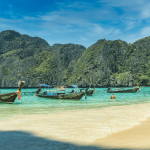Thailand’s stunning landscapes and rich cultural heritage have long made it a favourite destination for travellers. The opportunity to observe and interact with elephants only adds to the appeal. But as animal welfare concerns and ethical tourism grow, the question arises: should I ride elephants in Thailand?
In this blog, we’ll explore the ethical implications surrounding elephant riding to help you decide what kind of experience you want to enjoy. At Phuket Elephant Nature Reserve (PENR), we are committed and passionate experts who have worked in the elephant welfare field for many years. We prioritize our elephants’ welfare over anything else, but visitor education is a close second.
Take a look at our ethical elephant activities in Phuket, which do not include elephant riding, to learn more about what our reserve champions. Keep reading to find out why we believe the unethical practice of elephant riding is one you should avoid. If you have further questions, please contact PENR.
Historical Context of Elephants in Thailand
Elephants have been an integral part of Thai culture for centuries, playing roles in religious ceremonies, royal events, and battles. In the past, riding elephants was a symbol of power and prestige.
However, as times have evolved, so have our perspectives on the treatment of animals. Today, many argue that the traditional practice of riding elephants is not only outdated but also harmful to these majestic creatures.
Ethical Arguments Against Elephant Riding in Thailand
Animal Welfare Concerns
Elephant riding often involves a brutal training process, sometimes known as phajaan, where young elephants are separated from their mothers and subjected to harsh physical and psychological conditions. This process is intended to break these gentle creatures and make them submissive to human commands.
PENR strongly condemns such practices and advocates for the well-being of elephants.
All of the elephants in our reserve have been rescued from the Thailand tourist industry. This included elephant riding parks, circus shows, the logging industry, street begging, and other tourist attractions where they were exploited and neglected.
Did you know that elephants need to eat as much as 10% of their body weight every day? That’s between 100 to 200kg of food! Consuming this much simply isn’t possible if elephants are forced to carry tourists around all day. When we rescue a riding elephant, it’s typical for them to be highly underweight.
Today, the majestic creatures we have rescued live in 30 rai of natural lush jungle. This safe home means the elephants we care for can live a protected and peaceful life while receiving expert veterinarian care in a suitable environment.
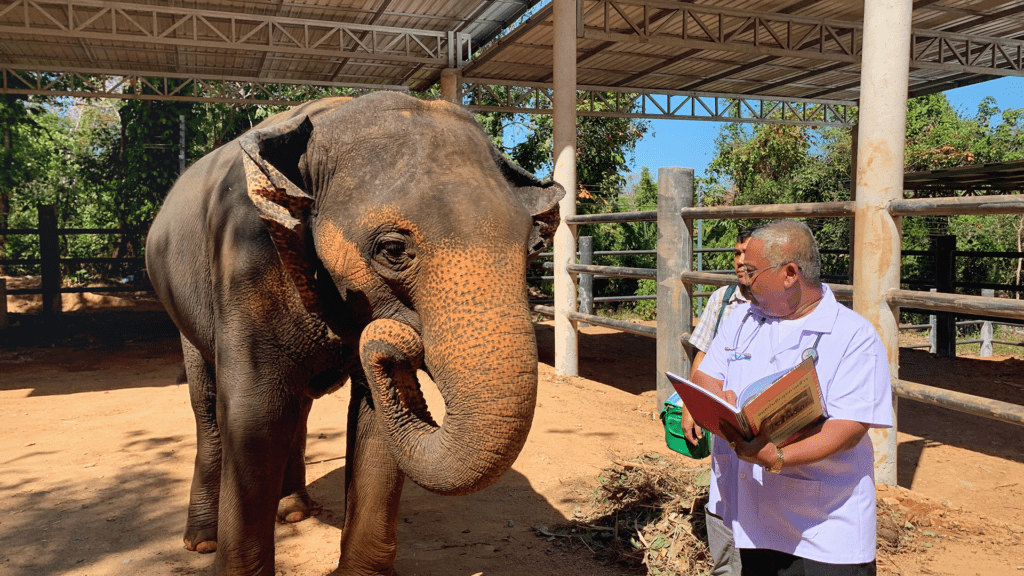
Physical Strain
Elephants are simply not built to carry the weight of humans on their backs for prolonged periods! Contrary to what elephant riding tours may tell you, riding can cause long-term damage to an elephant’s spine and lead to painful conditions, such as osteoarthritis.
Phuket Elephant Nature Reserve emphasizes the importance of respecting the natural limitations of these animals to ensure their health and happiness as part of the education offered at our reserve. We want all elephants to have a happy life, regardless of their past.
Unnatural Environment
Captive elephants used for riding are often kept in confined spaces, deprived of their natural habitats and social structures. This unnatural environment can lead to stress, aggression, and other behavioural issues. As such, Phuket Elephant Nature Reserve promotes the concept of ethical sanctuaries, where elephants can roam freely in a more natural setting.
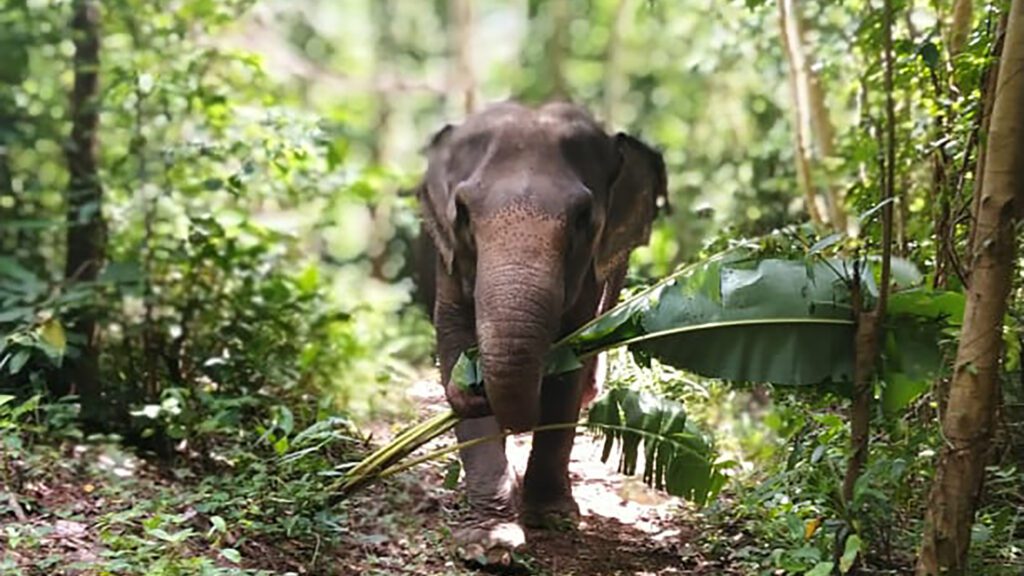
The Perspective of Phuket Elephant Nature Reserve
Phuket Elephant Nature Reserve stands at the forefront of the movement to redefine the relationship between humans and elephants. Here are some key insights from our perspective:
Advocating for Responsible Tourism in Thailand
Responsible tourism ensures that elephants are treated with respect and dignity. The reserve strongly encourages visitors to choose ethical alternatives to riding, such as observing elephants in their natural environment, helping make nutritional herbal treats, or contributing to conservation efforts.
You can read more on our blog about a typical morning with PNER’s elephants to learn how these gentle giants should be treated and the activities we provide for them at our reserve.
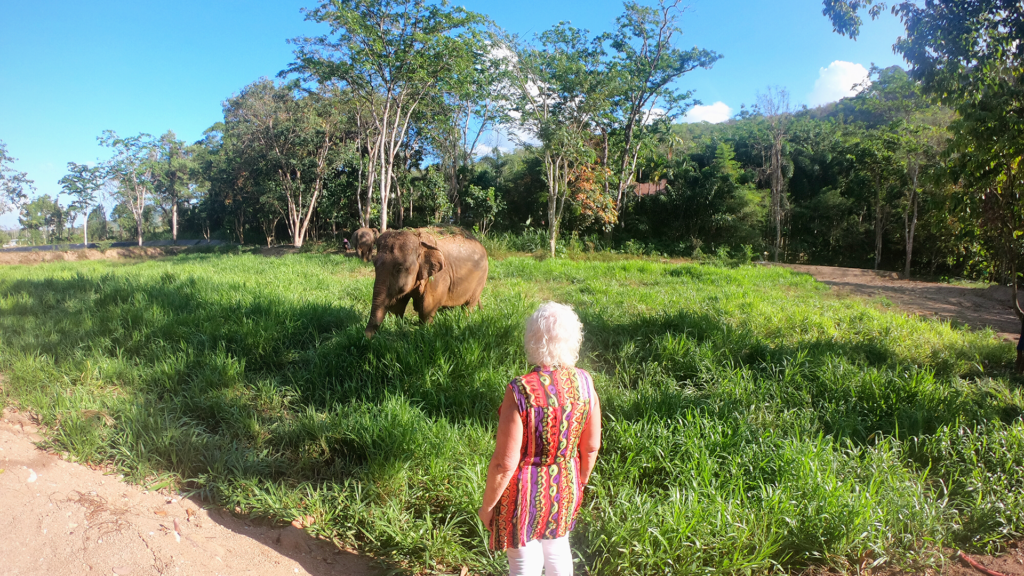
Educating Visitors About Elephant Welfare in Thailand
Phuket Elephant Nature Reserve believes in promoting education about elephant welfare to bring about positive change. Through guided elephant tours and interactive experiences, visitors are informed about the challenges elephants face in captivity and the importance of supporting sanctuaries committed to their well-being. You can learn more in our complete guide to Phuket’s elephants.
Supporting Elephant Conservation Initiatives on Your Trip to Thailand
The reserve actively engages in conservation efforts, including rescuing elephants from exploitative situations, providing medical care, and collaborating with local communities to promote coexistence. By actively choosing to visit and support conservation initiatives, you can contribute to the welfare of elephants rather than perpetuating harmful practices.
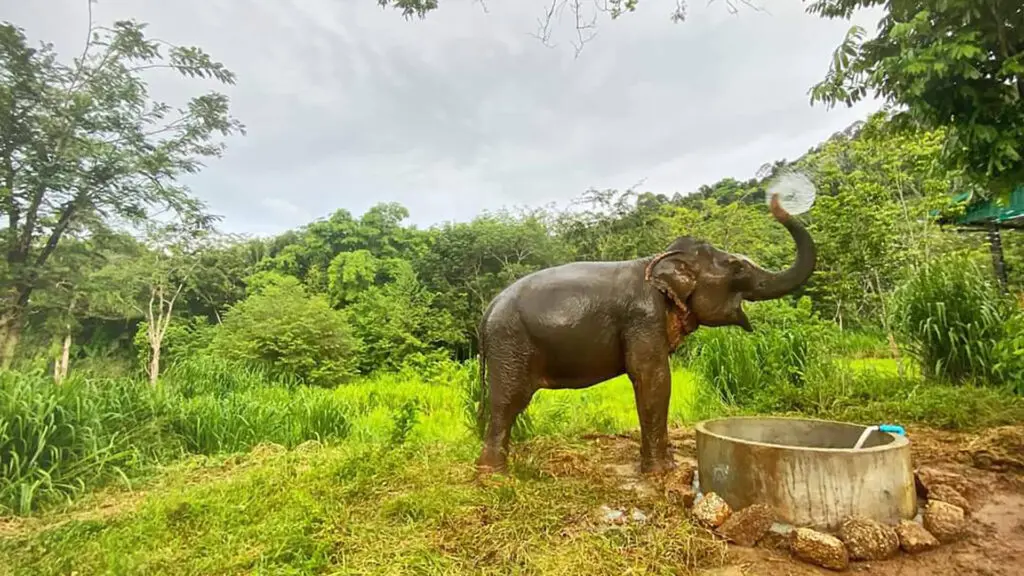
The question of whether to ride elephants in Thailand requires a nuanced and informed answer. Phuket Elephant Nature Reserve provides a compelling argument against this traditional practice, emphasizing the ethical implications and advocating for responsible tourism.
As a traveller, it is crucial for you to be informed and to make conscious choices that align with the well-being of the animals involved. In short, research is everything! If something doesn’t look or feel right, then chances are it’s not. By opting for ethical alternatives and supporting educational elephant tours like those championed by Phuket Elephant Nature Reserve, we can contribute to a more sustainable and compassionate approach to elephant tourism in Thailand and beyond.
If you have any questions about choosing a responsible elephant experience in Thailand, please get in touch with our team of experts.






